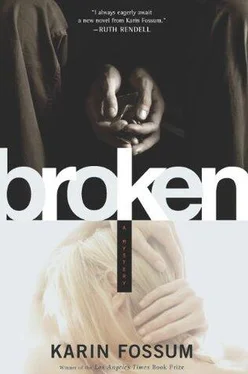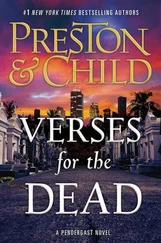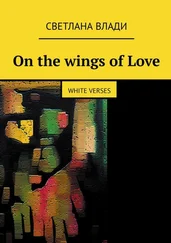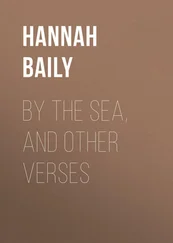‘It’s fine,’ I said. ‘I can check facts.’
‘I knew your mother,’ the woman said, stepping forward. ‘We marched together against the Hudood Ordinances.’
Great.
‘Twenty years ago. Can you believe it? Next year it’ll be twenty years.’
I looked at the CEO. ‘Can you send me the bio?’
He nodded and put his hand on the woman’s shoulder. ‘Come on. Out.’
‘She was a great lady,’ the woman said, her eyebrows emoting, before the CEO pulled her out and closed the door behind him.
Seventy. He would have been seventy.
He once joked that in his old age he’d become respectable — a revered, toothless icon, sufficiently domesticated for governments to trot him out on state occasions so that he could snore his way through ceremonies and receive standing ovations for mumbling, inaudible couplets.
‘No, you won’t. I’d kill you first,’ my mother cheerfully promised.
‘Now, there’s devotion for you,’ he laughed, taking her hand and kissing it.
Against my will I found myself trying to age both their features in my mind, picture her as she might look and him as he would have looked. It was a mental exercise I occasionally applied to Mama’s features, so that I would not fail to recognize her if somehow our paths crossed again.
There was an officious rapping on the door. When I made a sound of enquiry one of the CEO’s underlings shuffled in, so apologetic in his mien that I couldn’t help looking over his shoulder to see if someone else had boldly applied knuckles to door. He handed me a page which consisted of a single paragraph, printed in large bold font.
I scanned the sentences as the man shuffled out again.
How could anyone reduce that man’s life to this?
HE WAS BORN IN A FAR-FLUNG VILLAGE IN PUNJAB AND MOVED TO KARACHI AT THE AGE OF ELEVEN.
That was the opening. Inaccurate, already. He moved to Karachi at the age of thirteen, in 1945, the year my mother was born there. They liked to say, later, that there was an element of fate in that. (And I could hear his voice: Far-flung? Far-flung? Far from where and flung by whom?)
FROM THERE HE WENT TO PUNJAB UNIVERSITY TO GET AN MA IN ENGLISH LITERATURE AND BECAME WELL KNOWN IN LAHORE’S MUSHAIRAS (POETRY RECITALS).
‘Well known’ didn’t begin to describe the reception his poetry received, right from the beginning. His ghazals, in particular, drove the crowd to raptures — not just through the power of his imagery and his ability to mine a word for all its layers of meaning, but also for his capacity to surprise; he would start reciting a couplet, and after a line and a half the crowd would think they knew exactly what rhyme he was leading up to, and they waited with a keen anticipation for him to say it out loud, but suddenly, with just a few syllables to spare before the rhyme and refrain he’d turn it around completely, take it in an entirely different, and quite brilliant, direction. The crowd — often numbering in the thousands — would roar with delight and repeat the rhyme and refrain back to him, shaking the edifices of buildings around them with the sounds of poetry.
DURING THIS TIME HE TOOK THE PEN-NAME ‘NAZIM’ BECAUSE IT MEANT ‘POET’.
He took the pen-name Nazim because he adored Nazim Hikmet’s poetry.
HALFWAY THROUGH HIS UNIVERSITY STINT HE UNFORTUNATELY ABANDONED THE GHAZAL TO EXPERIMENT WITH WESTERN IDEAS OF POETRY.
He wrote sonnets, pantoums, villanelles, canzones. For those who had loved his ghazals this was a profound betrayal, particularly in light of the nationalistic, anti-colonial feeling that ran high among young Pakistanis in the early 1950s, and they mockingly took to calling him ‘The Poet’ rather than ‘Nazim’.
AFTER UNIVERSITY HE WENT BACK TO KARACHI which was then still a young cosmopolitan capital that was so busy experimenting with its own form that it wasn’t going to berate anyone else for doing the same
AND STILL UNDER WESTERN INFLUENCES HE FORGOT POLITICS AND SOCIAL CONCERNS IN FAVOUR OF OBSCENITY AND WAS HAULED UP IN COURT FOR THIS CRIME.
‘I don’t know what goes on in the minds of these disgusting people,’ he said, speaking in his defence at his trial for indecency. ‘I’m writing about eating fruit, and they say I’m being vulgar. What exactly do they think the mango’s slippery seed and dripping juices refer to?’ And with that, he put a mango on the table in front of him, cut it open along its equator and started sucking on its seed in a manner so suggestive that the newly married judge ran home to his wife.
THE CASE WAS DISMISSED BECAUSE THE JUDGE HAD OTHER THINGS TO DO AND HE CONTINUED TO WRITE, WINNING ACCLAIM FOR HIS CRAFT BUT NOT FOR HIS SUBJECT MATTERS.
By the time he was thirty he was already acknowledged as a craftsman in whose hands language was plastic; even his detractors acknowledged as much, while still complaining that, in contrast to his impassioned student days, he made language do everything except engender ‘worthy’ emotions in those who were listening. In one public gathering he ran into his old teacher who told him that, for all his formal brilliance, he was an inferior poet to his former classmate, Maqsood. ‘When you read a Maqsood poem you feel he’s plucking his heart out of his chest and placing it in your hand,’ the teacher berated him. The Poet replied, ‘Personally I don’t want any of Maqsood’s quivering organs sweating all over my palm.’
BUT THEN IN 1963 HE TRANSLATED THE POLITICAL POEMS OF AN OBSCURE TURKISH POET WHO SHARED HIS PEN-NAME.
He said afterwards that in some ways Nazim Hikmet’s death in 1963 affected him even more than the death of his own mother. He barricaded himself in the tiny cubbyhole which was his flat and within a few weeks produced his adaptations — he never used the word ‘translations’—of some of Hikmet’s verse with all its fiery politics. With discontent rife in the country over Ayub Khan’s constitution and its Basic Democracy scheme that made a joke of democracy it was either a brave or politically naive man who could publish such inflammatory verse; the Poet himself never said to which of the two categories he belonged.
THE AYUB KHAN GOVERNMENT IMPRISONED HIM FOR TWO MONTHS ON SOME CHARGE.
The deep scars across his face date from that first incarceration. He used to say simply that he got the scars from running into barbed wire. But one day I asked him, ‘How did you manage to run into barbed wire?’
‘Simple. The prison guards led me to barbed wire, put a gun to my head and said, “Run.”’
HE EMERGED FROM PRISON WITH HIS SOCIAL CONSCIENCE RESTORED.
He emerged from prison with a scarred face and a poetic voice that seared every government in Pakistan for the next two decades.
BUT HE STILL CONTINUED TO WRITE ROMANTIC VERSE AS WELL, THE MOST FAMOUS OF WHICH WAS LAILA , PUBLISHED IN 1970.
Oh no. No, no. No leaping from 1963 to 1970. No erasing 1968. That momentous year around the world — student revolutions, a new era dawning, my mother’s first meeting with the Poet. She was twenty-three and he was thirty-six. He was already immortal by then. Immortal and ugly — a short, stout, broad-nosed man with scars across his face. And she — she had just stepped into incandescence.
She was recently out of university at the time, and had been helping her uncle in his understaffed law firm as research for the book she was planning to write on ‘Women and Jurisprudence in Pakistan’. Her timing, in joining the firm, was either fortuitous or disastrous, depending on how you viewed the path her life took thereafter because, just weeks later, her uncle was engaged to represent a woman who accused her former employer of withholding her pay for six months and locking her in chains when he left the house. As the woman was an illiterate villager and her employer was a wealthy crony of many of the most powerful people in the country, it was a wonder either she or my great-uncle believed she’d ever get a fair trial. Forget fair. The matter didn’t even get to court before the former employer produced before my great-uncle and the woman ‘credible witnesses’ who were willing to attest to the moral depravity and pathological insanity of the woman. The woman walked out of my great-uncle’s office, swearing to him that she believed in justice, broke into the former employer’s house and when he returned she was waiting for him with his gun in her hand. She killed first him, then herself.
Читать дальше












